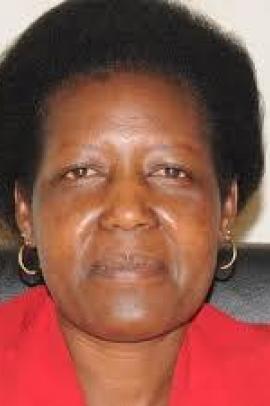Introduction
Open, Distance and e-Learning Campus offers courses through digital platform. All members including students and staff are expected to maintain high standards of academic conduct and professional relationships based on courtesy, honesty and mutual respect. Academic integrity is fundamental for success of this mode of teaching and learning.
Academic integrity means conducting all aspects of your academic life in a professional manner. The University takes any breaches of academic integrity (such as plagiarism, collusion, data fabrication, cheating, copying your own previously submitted work or another student’s work) very seriously.
As an ODeL learner, you are expected to:
- Take responsibility for your own work.
- Respect the rights of other scholars.
- Maintain respect and courtesy when debating with others, even when you do not agree with them.
- Acknowledge the work of others wherever it has contributed to your own.
- Ensure that your own work is reported honestly.
- Adhere to accepted conventions, rules and laws of referencing when presenting your own work.
- Ensure that you follow the ethical conventions and requirements appropriate to your discipline (referencing styles will vary from one department to another).
- Support others in their own efforts to behave with academic integrity.
- Avoid actions which seek to give you an unfair advantage over others.
- Demonstrate your own knowledge, skills and understanding of a subject.
- Receive feedback to help you progress by constantly maintaining academic integrity. Acting with academic integrity will help you develop professional skills and values which are sought by employers.
6.2 Plagiarism
Plagiarism is the act of copying and using another person’s expressions or ideas, without acknowledging them. We trust most students will always want to do the right thing. However, in instances where issues may arise, it is important to note how we define plagiarism to ensure serious cases can be avoided.
Unintentional plagiarism arises due to student confusion over how and where to reference, poor information literacy skills and confusion over the difference between copyright and common knowledge information.
Intentional plagiarism involves the deliberate act of presenting someone else’swork/ideas as if it were your own. Current technology makes such responses easy (e.g. cut and paste). To ensure your work is not penalized for plagiarism, meaning you risk failing assessment, asODeL learners, you are required to avoid:
- Copying or paraphrasing another person’s work without acknowledgment,
- Cutting and pasting entire documents from the internet and placing them inside your assessed work (even with minor changes).
This pitfall can be avoided by doing the following:
- Reference all assignments for submission appropriately.
- Check with your course facilitator about how group work will be assessed.
- Seek advice and support from your course facilitator or the learner.
Note: It is a requirement that all research work be subjected to an anti-plagiarism software before submission.
Academic Practice in Assessments
Academic integrity entails:
- Understanding good academic practice in written work and creative practice. Understanding how to use the work of other scholars, including your peers, to develop your own insights into a subject and spark new ideas.
- Use of words of others or their creative output (whether published or unpublished, including material from the internet) without explicit acknowledgement is plagiarism and is punishable.
- When taking notes, record your observations based on the document you are reading, show the paraphrased sections and direct quotations.
Learn to plan your study time effectively, be aware of deadlines and leave plentyof time for writing to avoid the need to take 'short cuts' which could lead to badacademic practice and poor achievement.To demonstrate your knowledge and ability effectively in assignments, you needto ensure that you address the question you are asked. The purpose of assessment is to enable you to develop and demonstrate yourown knowledge and understanding of the learning outcomes of a unit orprogramme or particular professional skills or competencies.
It is important to make clear which are your words, ideas or artworks and whichhave been taken from others.It is often helpful to discuss ideas and approaches to your work with your peersand this is a good way to help you think through your own ideas. However, worksubmitted for assessment should always be entirely your own except whereclearly specified otherwise in the instructions of the assignment.
Supports from your Department
To support you in developing your understanding of academic integrity and sound academic practice, your Department will provide you with:
- You will be issued with copies of university of Nairobi guidelines and regulations regarding academic integrity. They are also posted on various websites as shown variously in this handbook.
- Opportunities to participate in learning experiences to improve your understanding of academic integrity and academic good practice appropriate to your level of study.
- You will be provided with advice and information about referencing conventions within your discipline as appropriate to each level of study;information about sources of advice if you have particular learning needs.
- Advice as to what information in the discipline may be regarded as 'common knowledge' and therefore does not need to be referenced.
- Information about copyright and intellectual property and when you need permission to reproduce figures or other printed material (including material from the internet).
- Feedback on your work to help you perform to the best of your ability.
- Information, where applicable, about the use of electronic methods of plagiarism detection.
- Information about the consequences of academic malpractice.





